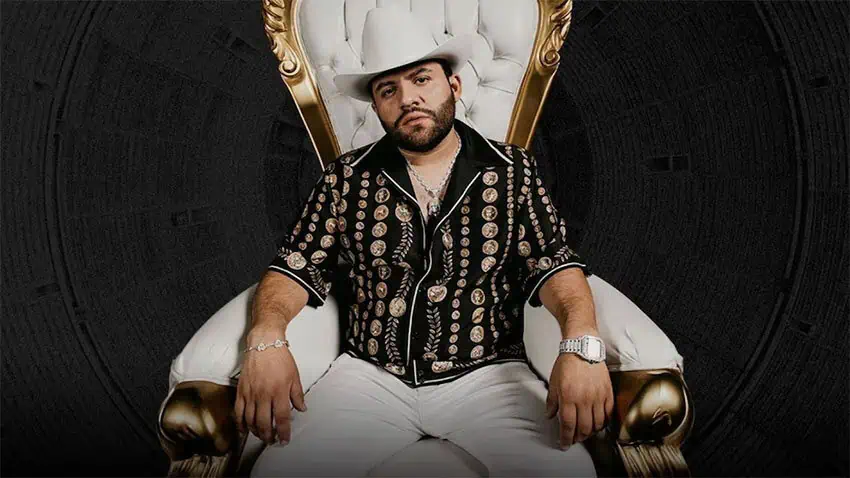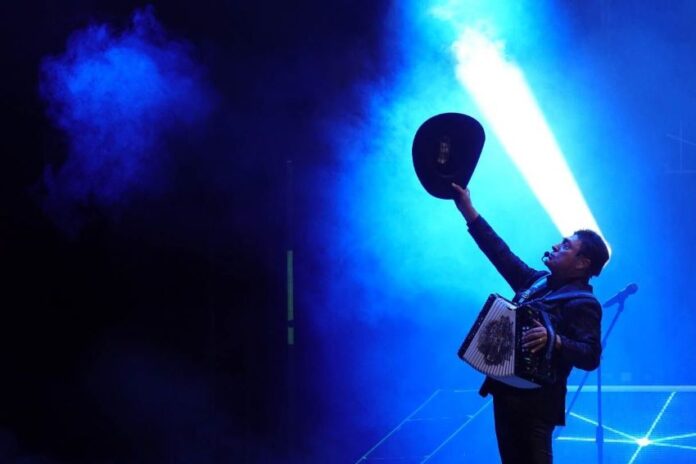Restrictions on narcocorridos — a Mexican regional music subgenre that tells stories associated with drug trafficking and organized crime — are on the rise in Mexico as more states and cities ban live performances of drug ballads.
Nayarit was the first state to issue a ban this year. More states have followed suit as pressure against the controversial genre has mounted, both in Mexico and abroad. Now, Querétaro, Jalisco, Aguascalientes, Michoacán and Mexico City have all announced restrictions on public performances of the music promoting violence or crime — prohibitions that in some cases extend to private events.
Why are Mexican states banning narcocorridos?
Prohibitions over narcocorridos, also known as corridos tumbados, are not new. In 2023, Tijuana, Baja California, banned narcocorridos, forbidding musical groups from singing them at public events and commercial establishments from playing them. That same year, the municipality of Benito Juárez (Cancún) denied granting permits to concerts that promote organized crime, and the city of Chihuahua, Chihuahua, banned corridos tumbados and music that promotes violence or misogyny. Artists such as Natanael Cano and Peso Pluma have faced sanctions for violating this rule.
By late March, the debate intensified after the musical group Los Alegres del Barranco performed a narcocorrido during a concert at the University of Guadalajara (UdeG), praising the leader of the Jalisco New Generation Cartel (CJNG), Nemesio Oseguera Cervantes, also known as El Mencho, while projecting his image on screen.
The United States later announced it would revoke the visas of the group’s members.
Weeks later, the Texcoco Feria del Caballo in the state of México became the center of the debate, after singer Luis R. Conriquez refused to perform some of his most famous corridos that reference — and sometimes glorify — real-life figures in the drug world. The musician, who self-censored after the state government threatened to criminally prosecute narcocorrido singers, left the stage as the rowdy fans began to riot.

The incident in Texcoco prompted President Claudia Sheinbaum to state that narcocorridos are not forbidden by the federal government. “It would be absurd to ban a musical genre,” she said. Instead, Sheinbaum said her administration proposes “that the lyrics stop condoning drugs, violence, violence against women, or viewing women as sexual objects.” In November, Sheinbaum announced a national contest seeking to change the lyrical content of narcocorridos.
Which states or cities have issued bans so far this year?
Nayarit
In February, Governor Miguel Ángel Navarro Quintero issued an official decree banning narcocorridos and corridos tumbados at fairs, stadiums, public squares, and other public spaces.
Querétaro
Last week on April 10, the Querétaro government and the state’s 18 municipalities signed a joint agreement to forbid public and private events that glorify crime.
Jalisco
On April 11, Governor Pablo Lemus ordered a ban on any public presentations or musical groups that glorify crime at events organized by the state government.
Mexico City
On Wednesday, Mayor of Mexico City Mayor Carla Brugada announced that her government will issue a directive to limit music with violent messages at government events and public spaces.
Aguascalientes
On Thursday, the local Congress approved an initiative to ban narcocorridos at public eventsjust days before the San Marcos Fair begins on April 19. The crime will be classified in the local penal code as “Provocation to commit a crime or apology for crime,” and will carry a prison sentence of six months to one year.
Michoacán
Starting Thursday, a decree signed by Governor Alfredo Ramírez Bedolla took effect prohibiting authorities from granting permits for public events hosting musical groups that advocate crime.
With reports from El Sol de Tijuana, Forbes, El Universal, El País
